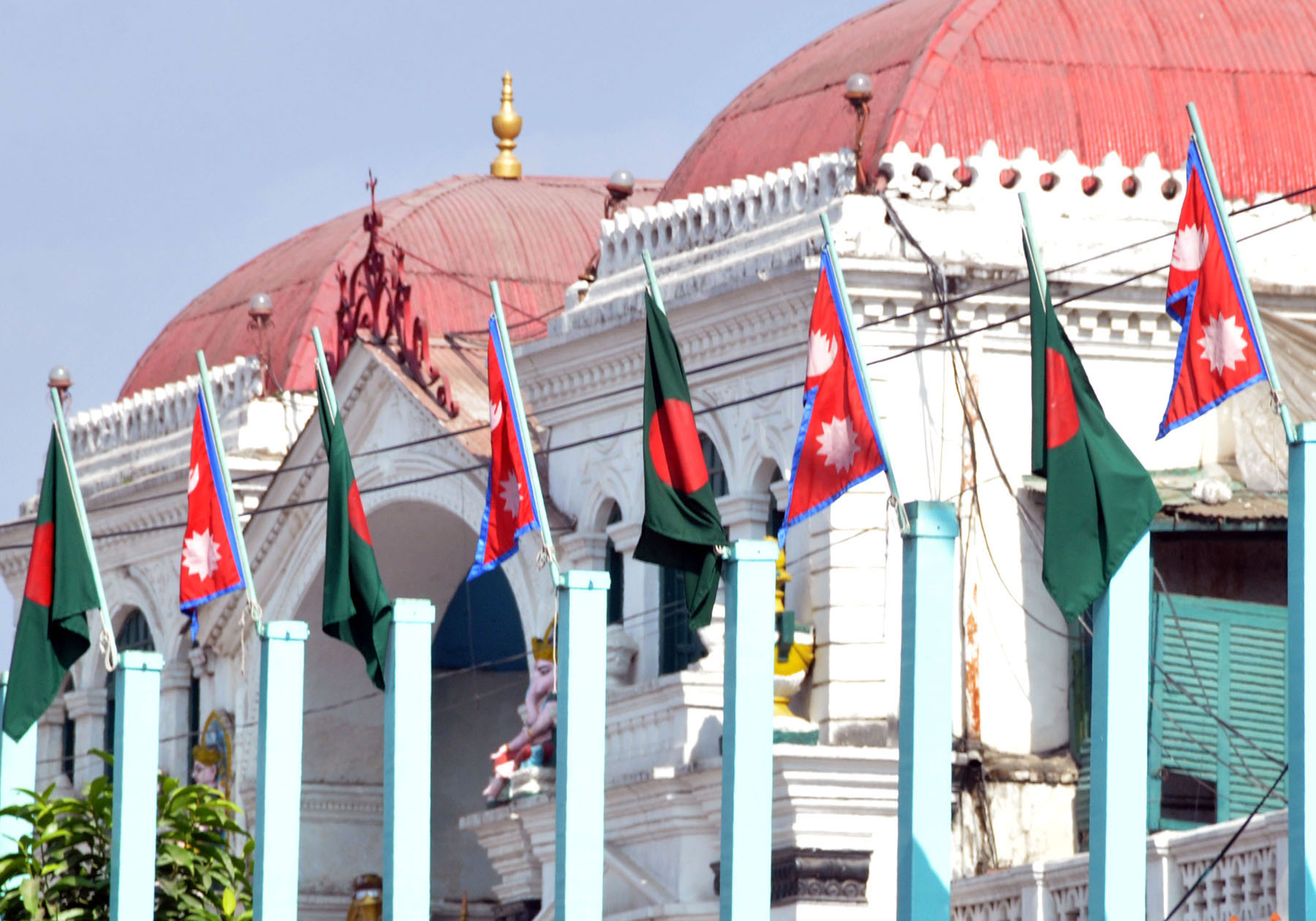Nepal-Bangladesh commerce secretary-level meeting kicks off
Kathmandu, March 3
The fifth Nepal-Bangladesh commerce secretary-level meeting has kicked off in Dhaka from today.
An eight-member team led by Baikuntha Aryal, secretary at the Ministry of Industry, Commerce and Supplies (MoICS), is participating in the two-day meeting. The meeting will primarily focus on bilateral trade and investment, direct bus service, cargo movement, direct flights, possible waterways connecting the two nations and easing different customs barriers, as per Nabaraj Dhakal, joint secretary at the MoICS.
Among others, Nepal has tabled a proposal to study the feasibility of operating direct bus service between the two countries from Kathmandu to Dhaka. Similarly, connecting the two countries through inland waterways is the other major agenda that Nepal has raised in the meeting. “Discussions are being held to study the feasibility of enhancing connectivity between the two countries through road, air and waterways. Enhanced connectivity between the two nations will promote and ease bilateral trade and investment,” said Dhakal.
Similarly, preliminary discussions regarding the bilateral investment promotion and protection agreement is also taking place at the meeting.
Nepal has been negotiating the preferential trade agreement (PTA) with Bangladesh urging the country to remove an array of duties and charges that it levies over and above basic customs duties on products of export.
The government has also proposed Bangladesh to review the list of Nepali exportable goods for duty free access to Bangladesh. Though Bangladesh has granted duty free access for 108 Nepali products in its market, the list does not include Nepal’s major exportable items.
Bangladesh is one of the major trade partners of Nepal.
In the last fiscal year, Nepal had exported goods worth Rs 1.3 billion to Bangladesh while the country had imported goods worth Rs 4.25 billion. Nepal’s exports to Bangladesh primarily constitute yellow lentils, oil cakes, cardamom (large), wheat, vegetable seeds, handicrafts and pashmina while it imports industrial raw materials, chemicals, fabrics and textiles, jute products, electric and electronic items from Bangladesh.






